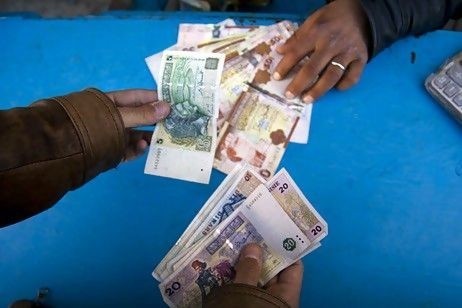One third of the Tunisian enterprises are forced to pay bribes to the administration they deal with in order to facilitate their business and “get things done” quickly. That’s what a study carried out by the Tunisian Institute of Competitiveness and Quantitative Studies (ITCEQ, French acronym) has revealed. The survey was conducted on 1200 enterprises located in different regions and it covered the period from October 1st to November 15, 2015. The survey, also, showed that 32% of those businesses consider that the customs offices are the most corrupt institution. These alarming statistics reflect the extent of corruption and financial abuse in post-revolutionary Tunisia.
On his side, Chawki Tabib, who’s been recently named at the head of the National Anti-Corruption Authority, declared that corruption is still rife in Tunisia, and is even getting worse than under Ben Ali’s rule.
That’s one of the main Tunisian paradoxes: pervasive and structured corruption was one of the main causes that fueled people’s anger against the ousted regime, as the deposed president and his extended family had captured the state, tailoring laws to enrich cronies at the expense of the public’s expense. People, including activists, believed that since dictatorship had benefited from corruption, democracy is going to be the most effective remedy: separation of power, freedom of the press and transparent and frequent elections could expose, denounce and punish any corrupt behavior. But things are slightly more complicated: this rather idyllic understanding of democracy as a system based on the principles of justice, equality and accountability does not take into account other complexities.
In fact, the problem is not only corruption and its devastating economic impact being costly in terms of economic efficiency, it is also its perception among public opinion as its rampant spread nurtures a “culture of distrust” towards the State and public institutions. Most Tunisians believe that widespread corruption is the result of the lack of political will to combat it. According to a survey published by Middle East on Line (9February 2016) 89% of Tunisians believe that the unprecedented scale of corruption and kickbacks is caused by a certain laxity of the government to fight them . Worse still, observers fear that this scourge could become so commonplace (and “normal”) that it could, in the future, raise no eyebrows. Then, it would become more and more difficult to break away from the culture of corruption and promote a new culture of accountability and transparency. But why is corruption so rife?
Here are attempts to explain: one of the reasons cited to explain large-scale corruption is the precarious situation during the post-revolutionary period as the country struggles to recover stability and the state tries to regain its full control and power. And therein lies the rub: the old monopoly of power with its crony corruption has given way to new political elites, from different backgrounds, competing for new state rents and new privileges. Then emerges a certain democratization of corruption: uncontrolled political influence, intrusion of political money in the media, partisanship engagement….
Then there are other explanations related to the priorities of the transitional period as the focus is usually put on organizing free elections, putting the legal framework to different organizations and building up constitutional institutions. True, institutions are important but, as someone has rightly put it,” institutions keep societies from falling apart, provided that there’s something to keep institutions from falling apart.” And to keep institutions from falling apart, the rule of law and transparency should take root. This has not always been the case here.
When corruption captures the state having the alliance of some corrupt businessmen with new politicians opportunistically eager for power, you can expect nothing but detrimental impacts; people begin to lose faith in accountability and justice in general. Moreover, it contributes, in a way, to more radicalization of the youth as they begin to lose confidence in democracy as the best governance possible, thinking that the old corrupt system is now legalized with new beneficiaries. Thus, corruption might have immediate economic effects but long-term damage on the future democracy.
I think that we are now at crossroads in the truest sense of the expression: we don’t have only to reinforce anti-corruption laws, but also to set up the condition of eliminating the possible loopholes for this rot through changing incentives and eliminating what might encourage corrupt behavior.
No-one could deny that financial lobby groups, smugglers and tax evaders have taken advantage of the weak rule of law, the post-revolution fragility of the state to set up their “shadow state”, which is getting more and more conspicuous, powerful and quite hard to dismantle without the rehabilitation of the rule of law, the restoration of state credibility, the enhancement of accountability and without guaranteeing the independence of the judiciary. Otherwise, this unique democratic experience in the Arab world might slide into dictatorship. Again.
Messaoud Romdhani is from the Committee for the Respect of Liberties and Human Rights in Tunisia
 Log in
Log in









